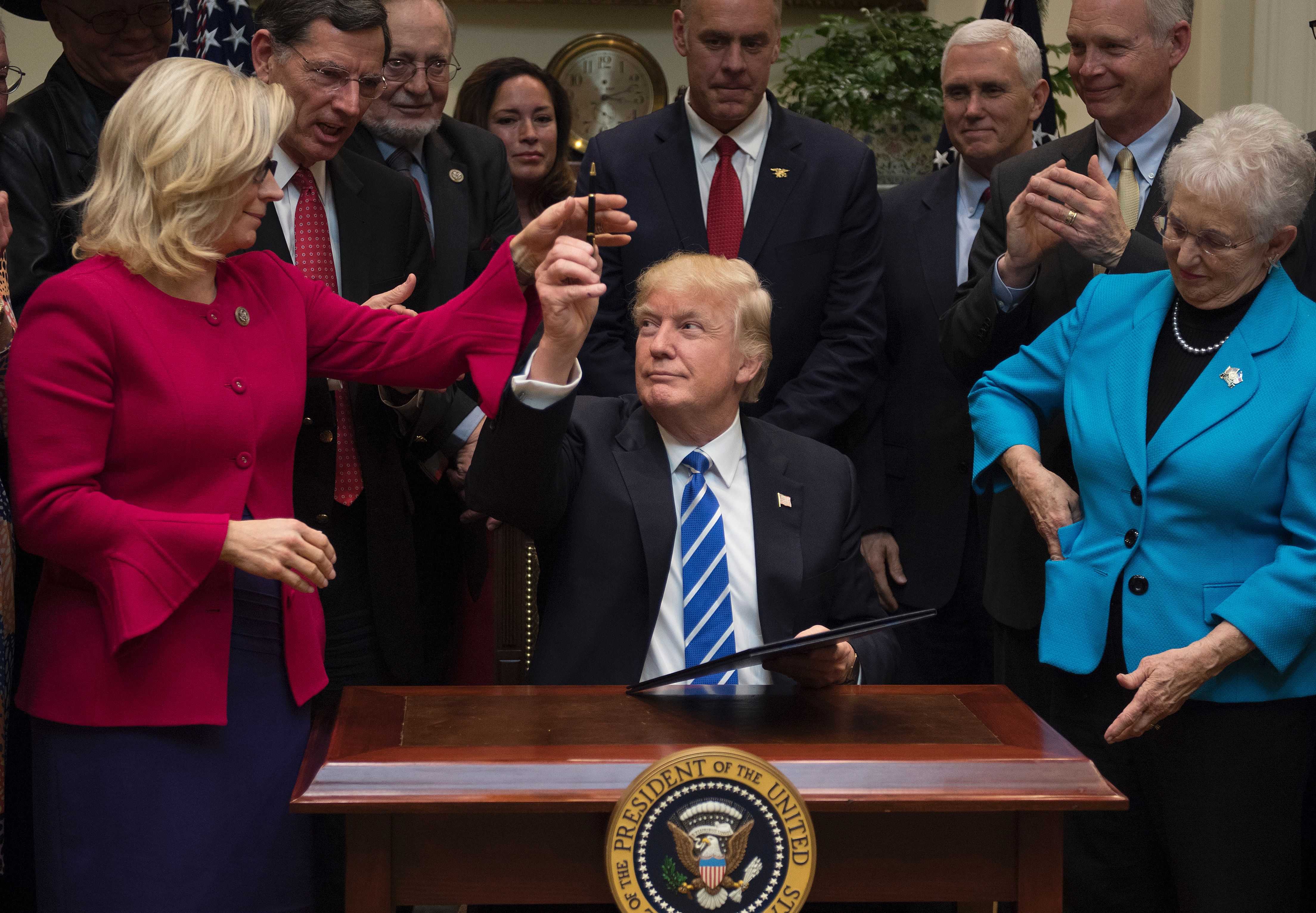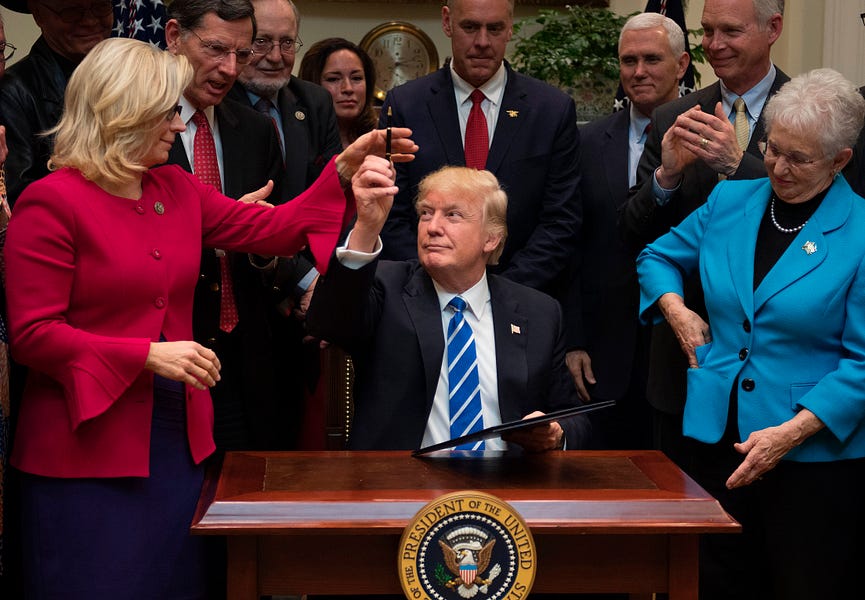Happy Wednesday! But you know what will be an even happier day? Tomorrow. Why? Because Dispatch Live is back!
Be sure to RSVP here to join Sarah, Steve, Jonah, and David tomorrow night at 8:30 p.m. ET/5:30 p.m. PT for a discussion of, well, whatever you want them to talk about! Comment here or shoot us a question at replies@thedispatch.com, and we’ll try to get to as many of them as we can. See you tomorrow!
Quick Hits: Today’s Top Stories
-
The United States confirmed 73,919 new cases of COVID-19 yesterday, with 9.8 percent of the 754,858 tests reported coming back positive. An additional 1,035 deaths were attributed to the virus on Tuesday, bringing the pandemic’s American death toll to 141,992.


-
A new report from the Centers for Disease Control estimated the true number of coronavirus cases in the United States could range from six to 24 times the number of confirmed cases, depending on geographic location. Much of the study’s data is from March and April, but it concludes that the vast majority of Americans are still vulnerable to COVID-19.
-
FBI agents arrested Ohio House Speaker Larry Householder and four others—including former Ohio GOP Chairman Matt Borges—as part of a $60 million bribery and racketeering investigation. “This is likely the largest bribery, money laundering scheme ever perpetrated against the people of the state of Ohio,” said U.S. Attorney David DeVillers.
-
President Trump signed an executive order yesterday ordering the Census Bureau to exclude undocumented immigrants from the population count that establishes how many members of Congress each state is apportioned.
-
Joe Biden rolled out a $775 billion plan on Tuesday that would deploy tax credits and subsidies to make child care more affordable, establish universal pre-K for 3- and 4-year-olds, and lower taxes for Americans who care for elderly family members themselves.
-
The Justice Department indicted two Chinese nationals for hacking into a number of businesses, governments, and non-governmental organizations over the past 10 years. Biotech companies working on COVID-19 vaccines and treatments were a recent target of the duo.
-
Twitter announced a crackdown on the QAnon conspiracy theory yesterday, removing more than 7,000 accounts associated with it from its platform and blocking tweets sharing links associated with the theory.
-
Rep. Matt Gaetz, a Republican from Florida and an outspoken fan of the president, allegedly violated congressional ethics rules by paying a speechwriting consultant with taxpayer dollars and having a television studio built in his father’s home.
The Post-Trump Jockeying Has Begun—Four Months Early

If you ask a Republican elected official today what he or she thinks of President Trump and his efforts to Make America Great Again, you’ll likely get the same answer that you would have gotten yesterday, or a year ago, or any day since Trump completed his takeover of the GOP on November 8, 2016: “I support the president.” Some might even go out of their way to praise his golf game.
But 104 days out from November’s election, Trump is now trailing Joe Biden nationally by nearly 9 points—and Republican members of Congress are starting to scramble to hedge their bets.
Whether it comes in 2021 or 2025, there is going to be a post-Trump GOP. Heck, that reality is one of the reasons the newsletter you’re reading right now exists in the first place. Privately, many Republicans are beginning to come to terms with that great unknown, and the increasing likelihood it will be upon us in four months, not four years. Yesterday provided a remarkable window into the fierce battles for the soul of the party to come.
House Freedom Caucus demands party unity.
Close followers of Congress and the GOP will immediately notice the absurdity in the above headline. Members of the House Freedom Caucus (HFC)—founded in early 2015 to advocate for “open, accountable and limited government, the Constitution and the rule of law, and policies that promote the liberty, safety, and prosperity of all Americans”—were for years a thorn in Republican leadership’s side. Banding together, the group of about 30 members had the power to hold legislation—and then-Speaker John Boehner—hostage. And they did. Repeatedly.
But yesterday, the shoe was on the other foot. As Steve reports in a piece for the site Tuesday’s House Republican Conference meeting—conducted on a day when more than 1,000 American deaths from COVID-19 were reported* and about a week before key CARES Act provisions are set to expire—quickly devolved into what can only be described as a group venting session for Freedom Caucus members, in which they took turns airing their grievances with Conference Chair Rep. Liz Cheney.
“Jim Jordan—my colleague, my mentor, my friend—made the case strongly that Liz Cheney is hurting President Trump,” Rep. Matt Gaetz, an HFC member, said on his podcast, called “Hot Takes w/Matt Gaetz.” “Jim pointed out Liz’s opposition to the president’s Afghanistan policy, the president’s Germany policy, the president’s response to coronavirus, her tweets attacking him and, frankly, her effort to try to oust Republican Thomas Massie.”
Other members of the House Freedom Caucus lined up to take shots at Cheney, too. Rep. Chip Roy, in a competitive race in Texas, complained that Cheney had defended Dr. Anthony Fauci from GOP attacks, providing campaign fodder to his Democrat opponent. Rep. Andy Biggs, current chairman of the House Freedom Caucus, suggested that if Republicans remained in the minority after November, Cheney would share the blame.
Soon after the meeting, Donald Trump Jr. decided to get in on the fun. “We already have one Mitt Romney, we don’t need another,” he tweeted, referencing Cheney. But Minority Leader Kevin McCarthy defended his Conference’s No. 3 in leadership. “We’re honored to have [Cheney] as conference chair,” he said. “She does an amazing job.”
Cheney, for her part, made an effort to downplay the confrontation, telling CNN the flare up was merely a “healthy exchange of views” and that the conference is “all unified in recognizing the danger the country would face if Joe Biden were elected president.” The daughter of the former vice president did, however, get in a shot at the son of the current president. “Donald Trump Jr. is not a member of the House Republican Conference,” she said matter-of-factly.
Brendan Buck, a top aide for former House Speaker Paul Ryan, tweeted that while “griping at leadership is basically the defining characteristic of a House GOP Conference meeting,” an “ambush like this against one member is actually quite rare.”
“It’s hard not to look at this and see Trumpists starting to set up folks to blame if he loses,” Buck said in a follow-up email to The Dispatch. “It won’t just be [Cheney] though. There will be plenty of other targets. In reality what Cheney is being accused of is holding consistent conservative views that haven’t changed just because Trump is president.”
Senate GOP: ‘What in the hell are we doing?’
Things got testy—though far less heated—on the other side of the Capitol on Tuesday as well.
We last wrote to you about coronavirus relief package negotiations between President Trump, Treasury Secretary Mnuchin, and Senate Majority Leader Mitch McConnell. Those negotiations were opened up to the rest of the conference yesterday when Mnuchin and White House Chief of Staff Mark Meadows dropped by the Senate GOP lunch.
It went about as well as you could expect to go with 53 people with differing agendas and constituencies haggling over hundreds of billions of dollars and the future of their careers.
“What in the hell are we doing?” Sen. Ted Cruz asked his colleagues, according to two sources familiar. He was objecting to the case—made by Mnuchin, Sen. Tom Cotton, and others—for another massive ($1 trillion) spending bill. Cruz said that the biggest priority in this next bill should be safely restarting the economy, adding that if things are still locked down come November, Joe Biden will win the White House and the GOP will be in the Senate minority—“meeting in a much smaller lunch room.”
Interestingly, Cotton had cited political realities to make the exact opposite case: The GOP should bite the bullet on the $1 trillion price tag now, because it would boost the party’s chances of holding onto the Senate come November and blocking even more spending down the road. “If you think this bill is expensive,” Cotton said, according to a source present, “wait until you see the Schumer-Pelosi-Biden agenda after the election.”
Cotton is up for re-election in Arkansas this November, but his only challenger is a relatively unknown member of the Libertarian Party named Ricky Dale Harrington. His main concern, according to sources familiar, was for his colleagues in much tougher races. Some of them—he mentioned McConnell and Sen. John Cornyn, among others—would be even more vulnerable if the Senate doesn’t move on additional relief.
Sen. Pat Toomey—more in the Cruz camp on this issue than the Cotton one—told Declan last week that there could be “significant Republican opposition in the Senate” to a package that comes in at around $1 trillion, adding that any legislation should be careful not to “exacerbate incentives to stay out of work.”
Any opposition at all would represent an infinite percentage increase from pushback to the CARES Act, which passed the Senate unanimously back in March. But—at least for the time being—this is still Donald Trump’s Republican Party, and the likelihood of enough senators banding together to block an eventual package is miniscule. “I wouldn’t be shocked if a package comes together that is on the order of a trillion dollars,” Toomey conceded. “If the administration strikes a deal with Speaker Pelosi, then it’s very likely that that’ll end up passing and getting signed into law.”
What comes next
The Trump electorate, as constituted, is not going to outlast Trump himself. Other politicians over the past four years have tried to emulate his style—and more will undoubtedly do so in the future—but a winning Electoral College coalition that mashes together devout Evangelicals, lifelong Blue Dog Democrats, C-suite executives, and the alt-right is likely Donald Trump’s, and Donald Trump’s alone.
If he does lose in November, as is looking increasingly likely (but there’s still a long way until the election!), the fight for dominance in the post-Trump GOP will start immediately, and it will be vicious. The groundwork is being laid now.
The House Freedom Caucus-types that have gone all-in on Trump the man will be looking for a place to lay the blame for his loss. Those who’ve gone all-in on nationalist, populist Trumpism—Cotton, Sen. Josh Hawley, Tucker Carlson, etc.—will argue Trump’s message was correct but the messenger was flawed. Expect many who went along to get along these past four years to start playing up their differences with Trump to get a head start on the competition in the case of a Biden landslide.
Which faction comes out on top will depend on a whole host of factors, not least of which is the margin in November. But rest assured: If you’re interested in these coming battles and how they will play out, you’re subscribed to the right newsletter.
Trump: The Virus ‘Is Likely to Get Worse Before It Gets Better’
President Trump held his first coronavirus-focused press briefing since April yesterday, speaking to reporters alone rather than being accompanied by Dr. Anthony Fauci, Dr. Deborah Birx, and other members of the coronavirus task force. The task force’s daily briefings were originally called off months ago when it became clear the president’s combative tone and freewheeling rhetoric were hurting his political standing, frustrating Republicans in Congress and unnerving many Americans.
In contrast to the March and April briefings, however, Tuesday’s press conference was remarkably low-key and to-the-point. Trump spent about 15 minutes reading written remarks—largely staying on script and avoiding his characteristic ad-libbing—and then took questions for a similar period of time before ending the event. The president’s tenor wasn’t entirely devoid of his usual Trumpian eccentricities (repeatedly insisting on calling COVID-19 the “China virus,” for example), but the 30-odd minute briefing was a relatively professional affair, when compared to its chaotic daily renditions in the earlier months of the coronavirus pandemic.
The dustbin of history is littered with examples of pundits and news outlets celebrating a presidential pivot or shift in tone from Trump. We won’t make any such claim here, it never ages well. But nevertheless, yesterday’s briefing is indicative of a White House coming to grips with the fact that its coronavirus strategy has thus far been a political loser—and is scrambling to change course.
This rebrand is noticeable in the administration’s disposition towards mask-wearing in recent days. Trump, who had resisted appearing publicly in a mask for months, and publicly mocked a reporter for wearing one during a briefing as “politically correct,” did so for the first time on July 11 during a visit to the Walter Reed National Military Medical Center outside Washington, D.C. He tweeted that mask-wearing was “patriotic” earlier this week, a sentiment he repeated when the issue came up during Tuesday’s briefing. “I have no problem with the mask,” he said when pressed by reporters on his previous skepticism, pulling out his custom-made presidential mask to show to the cameras and saying that he carried it with him everywhere. “Anything that can help, I think we should do.”
But while the president’s comments yesterday still contained plenty of his signature bluster—he quadrupled down on his insistence that the virus will “disappear,” for example—Trump’s briefing was more level-headed than usual and contained some surprising realism about the state of the pandemic. The virus “is likely to get worse before it gets better,” he admitted at one point. “[That’s] something I don’t like saying about things, but that’s the way it is.”
Worth Your Time
-
In her latest for Harper’s, Annie Hylton profiles Syrian human rights lawyer Anwar al-Bunni and his search for war criminals of Bashar al-Assad’s regime among European refugees. The heart rending story details the detainment, torture, and execution of many thousands of innocent civilians in Syria and the ongoing effort to hold the perpetrators accountable. “For al-Bunni’s part, such cases are about more than the people on trial. They are about laying bare Assad’s atrocities—torture, murder, gender-based violence—in a court of law, for the historical record,” Hylton writes. “Al-Bunni believes that Raslan’s case will “give hope to the victims, who, after nine years now, think nobody cares about what happened in Syria.” He wants to send Assad’s regime a message: “Justice is coming.”
-
President Trump reportedly asked Woody Johnson—New York Jets owner turned U.S. ambassador to the U.K.—if he could convince the British government to move the annual British Open golf tournament to the Trump Turnberry resort in Scotland. Johnson’s deputy, Lewis Lukens, emailed State Department officials about the incident, and a few months later he was gone—Johnson forced him out. Johnson, the White House, and the State Department declined to comment on the story from Mark Landler, Lara Jakes, and Maggie Haberman in the New York Times.
Presented Without Comment
Also Presented Without Comment
Also Also Presented Without Comment
Toeing the Company Line
-
If you read yesterday’s Morning Dispatch, you’ve heard about the constitutional questions surrounding the federal government’s intervention in Portland. The latest French Press(🔒)shifts gears, bringing a discussion of competence to the table. David highlights the discord sown when government actors fail to restore peace at the same time that they actively violate civil liberties. “Why do I say the Trump response is incompetent?” he asks. “It commits the cardinal sin of responding to civil unrest, in that it introduced enough additional force to inflame the resistance but not enough additional force (or effective tactics) to quell the resistance.”
-
In the year of murder hornets and extraterrestrial life, no claims are too outlandish to rule out completely. Alec’s latest Dispatch Fact Check debunks viral reports that the Trump reelection campaign planned to use a blimp equipped with “state-of-the-art spy gadgets” to collect voter information and request donations from Americans below.
Let Us Know
If the Great Republican Crackup is finally upon us, with which faction — if any — are you riding into battle?
Reporting by Declan Garvey (@declanpgarvey), Andrew Egger (@EggerDC), Sarah Isgur (@whignewtons), Charlotte Lawson (@charlotteUVA), Audrey Fahlberg (@FahlOutBerg), Nate Hochman (@njhochman), and Steve Hayes (@stephenfhayes).
Photograph by Jim Watson/AFP via Getty Images.
Clarification, July 23, 2020: This newsletter originally said that more than 1,000 Americans died from COVID-19 on Tuesday. That may have been the case, but the numbers we referenced were for reported COVID-19 deaths, which, due to a lag in data collection, could have occurred in the days leading up to Tuesday. The phrasing has been updated.






Please note that we at The Dispatch hold ourselves, our work, and our commenters to a higher standard than other places on the internet. We welcome comments that foster genuine debate or discussion—including comments critical of us or our work—but responses that include ad hominem attacks on fellow Dispatch members or are intended to stoke fear and anger may be moderated.
You are currently using a limited time guest pass and do not have access to commenting. Consider subscribing to join the conversation.
With your membership, you only have the ability to comment on The Morning Dispatch articles. Consider upgrading to join the conversation everywhere.